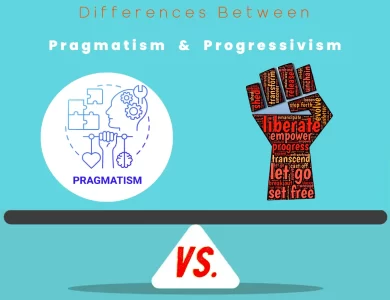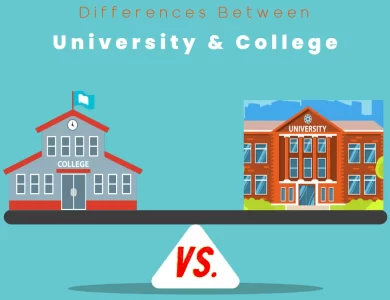Philosophy Education
Here, we delve into the nuanced differences in terms, concepts, and other elements that make up this rich field of study. Whether you’re a seasoned philosopher, a curious student, or simply intrigued by the intricacies of philosophical thought, you’ve come to the right place.
In this extensive collection of content, we unravel the complexities of Philosophy Education, breaking down various terms and shedding light on their distinctive meanings. Our aim is to provide you with a deeper understanding of the subject matter, enabling you to navigate philosophical discussions and texts with confidence and clarity.
-

Cultural Change vs Social Change
In the ever-evolving tapestry of human society, two prominent threads weave their way through our lives - Social Change and Cultural Change. These concepts are often used interchangeably, but they're not quite the same. Let's embark on a journey to unravel the key differences between Social Change and Cultural Change, exploring their unique features, impacts, and the intricate ways in which they shape our world. Social Change refers to alterations in the structure, behavior, and interactions within a society over time. It involves modifications in social institutions, norms, values, and relationships. Social Change can manifest through shifts in policies, laws, demographics, and societal attitudes. These changes can be gradual or rapid and may result from various factors such as technological advancements, economic transformations, political movements, or cultural shifts. Cultural Change, on the other hand, pertains to transformations in the shared beliefs, customs, traditions, and expressions of a particular group or society. It encompasses changes in art, language, religion, rituals, and other aspects of culture. Cultural Change can occur through innovation, diffusion of ideas, contact with other cultures, or generational shifts. It shapes the way people perceive and engage with the world, influencing their values and behaviors.
-

Constructionism vs Constructivism
In the realm of education, two prominent theories, Constructivism and Constructionism, often emerge as compelling approaches to learning. While their names may sound similar, these theories have distinct philosophies and implications for teaching and learning. Constructivism is a theory that posits learners actively construct their knowledge by engaging with their environment and prior experiences. It traces its roots to renowned psychologists Jean Piaget and Lev Vygotsky. Constructivism emphasizes the importance of social interaction, prior knowledge integration, and the progressive development of cognitive skills. In constructivist classrooms, teachers often transition from traditional instructors to facilitators, encouraging discussions, critical thinking, and reflection among students. Constructionism, an extension of Constructivism, was developed by Seymour Papert and colleagues at MIT. This theory takes an even more hands-on approach, emphasizing project-based learning, personal meaning-making, and often, the integration of technology. In constructionist environments, learners actively create tangible artifacts or digital projects, fostering creativity and practical skills. Teachers in constructionist settings become mentors, guiding students in project development and technical aspects. Understanding the differences between Constructivism and Constructionism is crucial for educators and learners alike. By recognizing their unique principles and approaches, individuals can make informed decisions about which theory aligns best with their teaching goals and the learning experiences they seek to create.
-

Progressivism vs Pragmatism
Pragmatism and Progressivism, though both influential in the realm of education, embody distinct philosophies that shape teaching and learning methods. Pragmatism, rooted in practicality and real-world problem-solving, emphasizes the acquisition of job-ready skills, structured curricula, and empirical evidence. In contrast, Progressivism prioritizes personal growth, creativity, inclusivity, and the relevance of education to real-world issues. Teachers in Pragmatism often serve as facilitators, focusing on critical thinking, while Progressivism encourages a nurturing role, creating an environment for independent exploration. Curricular differences emerge as well, with Pragmatism favoring structured subject-based learning and clear objectives, while Progressivism leans toward flexible, student-centered curricula. Assessment methods differ, too, with Pragmatism utilizing traditional tests and quizzes, while Progressivism relies on ongoing observation and real-world project evaluation. The philosophies diverge in their view of knowledge; Pragmatism sees knowledge as a practical tool, while Progressivism views it as a means of personal and social growth. In terms of discipline, Pragmatism enforces clear rules, while Progressivism encourages a democratic approach with student involvement. Understanding these differences aids in tailoring educational approaches to specific contexts and goals.
-

Constructivism vs Positivism
In the realm of philosophy and research methodologies, the dichotomy between Positivism and Constructivism emerges as a pivotal juncture that shapes how we perceive reality and investigate knowledge. These two distinct paradigms represent not just different methodologies but also contrasting worldviews. Let's embark on a journey to uncover the profound Differences Between Positivism and Constructivism. Positivism, a venerable philosophical tradition, champions the pursuit of objective truth through empirical observation and scientific methods. It asserts that there exists an external, objective reality that can be quantified, measured, and studied using systematic approaches. Positivists strive for objectivity, emphasizing the elimination of subjectivity and personal bias in their research. They employ quantitative methods, such as experiments and surveys, to uncover universal laws and principles governing the world. Constructivism, on the other hand, asserts that reality is subjective and actively constructed by individuals within their unique contexts. It recognizes that human experiences are shaped by culture, context, and personal perspectives. Constructivist researchers value the richness of subjective experiences and employ qualitative methods like interviews and observations to delve into the intricacies of perception and interpretation. They view individuals as active participants in the creation of their own understanding of reality. The choice between Positivism and Constructivism in research is not merely a matter of preference but a decision that profoundly influences the nature of inquiry and the insights gained. As we navigate through the nuanced distinctions between these paradigms, we will gain a deeper appreciation of their impact on the pursuit of knowledge and understanding in diverse fields of study.
-

Social Science vs Sociology
In the vast landscape of the social sciences, two terms frequently emerge: Sociology and Social Science. While they both delve into the intricacies of human behavior, culture, and society, they are not synonymous. Let's embark on a journey to unravel the key distinctions between these intriguing fields of study. Sociology, often referred to as the "science of society," zooms in on the intricate web of human interactions within the context of groups and societies. Its focus is precise—it delves into understanding social structures, relationships, and collective behavior. Sociologists use a diverse range of research methods, including surveys, interviews, observations, and statistical analysis, to uncover the mysteries of human behavior within the social context. On the other hand, Social Science is a comprehensive umbrella term encompassing various disciplines, including psychology, anthropology, economics, political science, and more. Each of these disciplines has its own unique focus and methods. While sociology specializes in the study of society, Social Science provides a broader perspective, allowing individuals to choose from a diverse range of fields based on their interests and career goals. To decide which path aligns with your passion and aspirations, it's essential to explore the nuances of these disciplines, from their scopes and methodologies to their career prospects and interdisciplinary connections. So, read on to gain a deeper understanding of the key differences between Sociology and Social Science, and discover the right path for your academic and professional journey.
-

University vs College
Are you feeling perplexed by the terms "university" and "college"? Do you find yourself wondering what sets them apart in the realm of higher education? Look no further! In this article, we unravel the distinctions between universities and colleges, shedding light on their academic programs, campus experiences, and more. Whether you're a student navigating the college application process or simply curious about the education landscape, join us on this enlightening journey as we explore the captivating differences between universities and colleges. Universities encompass a vast array of undergraduate and postgraduate programs across various disciplines. With an emphasis on research and innovation, universities often boast cutting-edge facilities and renowned faculty members who actively contribute to their fields. On the other hand, colleges typically specialize in undergraduate education, offering programs tailored to specific fields of study. These institutions often prioritize practical skills and career readiness, providing students with a more intimate and personalized learning environment. Beyond academic offerings, universities and colleges differ in campus size, faculty-student ratios, and the overall campus culture. Universities often feature sprawling campuses with diverse resources and extracurricular activities, fostering a vibrant and multicultural atmosphere. Meanwhile, colleges offer a tight-knit community where students benefit from smaller class sizes and closer interactions with professors. Join us on this educational voyage as we delve into the captivating realm of universities and colleges. Gain valuable insights to inform your educational journey and make an informed decision about your future.





